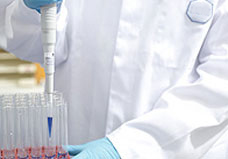| |
 |
|
|
|
|
|
|
Malaria |
|
|
What is Malaria?
Malaria disease is a parasitic disease. This means that it is
caused by a parasite, a tiny organism that lives in or on other
organisms called a host. This parasite’s host is a mosquito. The
parasite is transferred to a potential victim when he or she is
bitten by a mosquito.
Causes of Malaria Disease
Malaria is caused by a parasite that has infected the saliva
glands of a female mosquito. Once a mosquito that has been
infected by the parasite that has grown to a certain stage of
development bites a someone then that person gets Malaria, then if
a female Mosquito (Genus: Anopheles) then bites that Malaria
Disease victim the second mosquito can pass it to other people
without being infected itself (that mosquito is called a vector).
Signs and Symptoms
The symptoms of Malaria can vary greatly, from no symptoms at all
or mild to extremely serious and may even result in death. Malaria
is often put into two different Categories. One is Uncomplicated
and the other is Complicated.
Incubation period - depending
on the type of parasite the incubation period can range anywhere
from 7-30 days. People who have traveled to Malaria prone areas
should tell their doctor that they have done so, because even with
the antimalarial drugs, some types of Malaria can delay onset of
symptoms for up to one year.
1. Uncomplicated Malaria
The general (but very infrequent) attack of Malaria usually
continues 6-10 hours. There are three phases to this and these
usually return every 2 to 3 days depending upon the type of
parasite (there are 4 types).
A. The cold phase (shivering, feeling cold)
B. The hot phase (vomiting, fever, headache; convulsions in
children)
C. The Sweating phase (sweating, normal temperature, sleepiness)
However, more frequently the patient usually has the following
signs and symptoms: chills, fever, nausea and vomiting, headache,
general uncomfortable ness, and body aches.
There may also be: Enlarged spleen, fever, perspiration, general
weakness.
In P. falciparum Malaria there may be these added
findings:Enlarged Liver, mild jaundices, and increase respiratory
rate.
Depending upon the country and the frequency that Malaria is
experienced the patient will either self-medicate; as we do here
in America with a cold or they will seek professional help after
improper medications fail to take effect.
2. Complicated Malaria
This usually occurs where there is either low or no immunity to
this disease, including locations where Malaria Disease is rare or
immunity is low because of other health risks. Complicated Malaria
results in blood and organ disorders, including fluid on the lung,
and loss of Kidney function.
In all areas of the world complicated Malaria Disease is an
emergency and should be treated as quickly and as intensely as
possible because without treatment other major medical problems
appear and eventually death does occur. As with other conditions
pregnancy is complicated by the disease resulting in possibly
early termination of the pregnancy if the disease is severe
enough.
In addition, relapses are also known to happen, even months and
years after the first attack. This is due to one genus of
parasites having dormant stages that have been known to reactivate
long after the disease has been cured. There are medications that
are able to prevent this and should be started as soon after the
first attack as possible.
Treatment of Malaria Disease
Laboratory tests should be performed and diagnosis of Malaria
Disease should be confirmed before any treatment is started. Not
doing this should be reserved only for special cases, limiting it
to those situations where clear suspicion of a very extreme case
is determined and lack of facilities necessitates doing so.
Treatment is determined by three
specifications:
1. The species of infecting parasite-this is for three
different reasons.
a. P. falciparum causes a severe and quickly progressing illness
or death, while the other
three species rarely are this severe.
b. P. Vivax and P. ovale demand treatment for forms that remain
dormant and can induce
repeat infections.
c. P. Falciparum and P. Vivax are known for different resistance
levels in different
geographic areas where infections occur. For P. Falciparum
rapid beginning of
treatment is extremely necessary.
2. The physical state of the infected person.
3. The resistance level of the parasites determined by the
place the person was
when infected.
4. In addition other things to remember about the drug
treatment
a. Other ailments the patient has.
b. Pregnancy
c. Drug allergies and sensitivities.
|
|
|
|
Malaria - treatment of Malaria, Malaria types,
Disease medicines, Malaria symptoms, Malaria and Disease symptoms, Malaria
symptoms Disease and diagnosis, Symptoms and Solutions, Signs and Symptoms,
type of Malaria, cause common, common Malaria, Malaria List, causes list,
Infectious Malaria, Causes, Diseases , Types, Prevention, Treatment and
Facts, Malaria information, Malaria: Definition, Malaria names, medical
Malaria, medical Malaria and disorders, cell Malaria, Malaria Worldwide,
Malaria Research, Malaria Control, Malaria Center, Digestive Malaria Week,
Information about Malaria, causes of different Malaria, Malaria Articles,
Malaria and conditions, Health and Malaria, Malaria Patients, Malaria and
Sciences, causes of alzheimer's Malaria, Malaria causes, alternative
medicine heart Malaria, body ailments, Malaria medicines, medical antiques,
type of blood Malaria |
|
|





